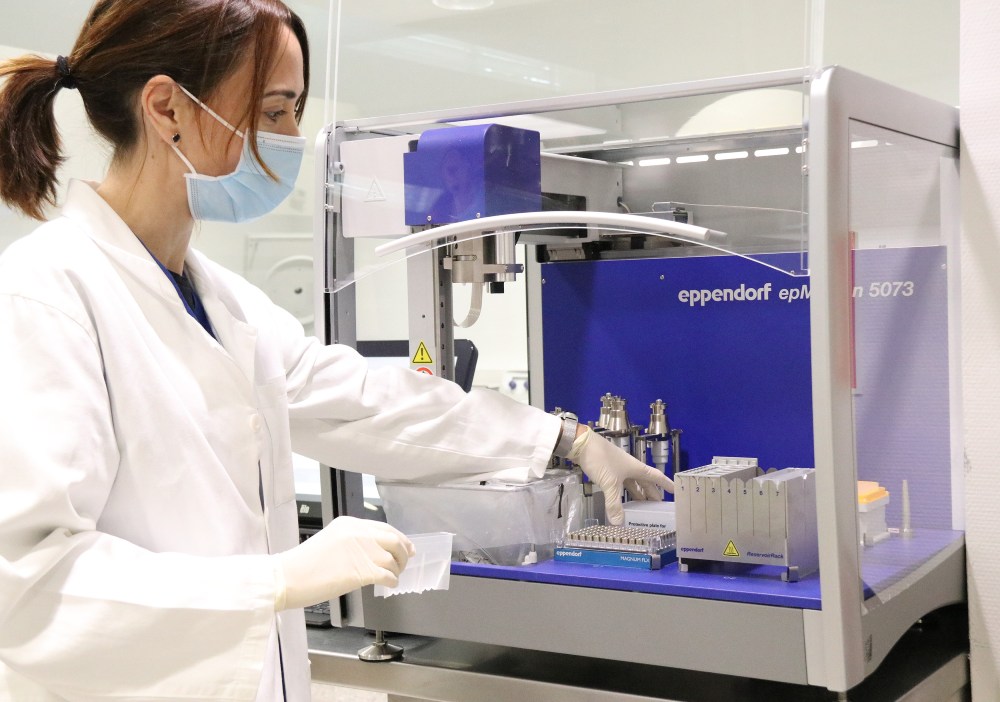Table of Contents
What is premature ovarian failure?
Premature ovarian failure (POF), also known as primary ovarian insufficiency (POI) is the loss of ovarian function before a woman reaches the age of 40. In extreme cases, the condition may affect women in their twenties or even in their teenage years. POF occurs in 1 in 1,000 women aged 15-29 and 1 in 100 women aged 30-39. When a woman is affected by POF her hormonal balance is distorted as her ovaries do not produce normal levels of estrogen. As a consequence, eggs are stopped releasing regularly, the period stops. Unfortunately, this leads to infertility. To become mothers, these women turn to assisted reproduction techniques like IVF or egg donation.
What are the causes of premature ovarian failure?
The origin of this pathology may vary. Early ovarian failure may be caused by
- genetic disorders such as Turner syndrome or the X-fragile chromosome syndrome,
- autoimmune disorders (also thyroiditis and Addison disease),
- other external agents such as radiation therapy or chemotherapy.
Unfortunately, the cause is unknown in the majority of female patients and the above factors account for approximately 20-25% of all cases.
How to diagnose premature ovarian failure?
As a consequence, in recent years, many studies have been carried out to uncover the genes that are responsible for ovarian failure. The research in the field of fertility genetics has advanced significantly thanks to the appearance of massive parallel sequencing or NGS (next-generation sequencing). This technology allows to analyze numerous genes in different patients in a quick and effective way. The new genes identified contain the genetic information of various proteins that regulate and control different processes in the ovary, such as ovarian follicle development, cell division, and DNA repair.
The genetics and molecular biology department at Instituto Bernabeu carried out their own investigation project. The obtained results allowed the clinic to offer the IBgen POF – Ovarian Failure Genetic Study to their patients, a new diagnostic test where more than 500 genes are analysed to identify if your condition is caused by a genetic alteration.
Until now, the study performed on patients has been limited to the karyotype and the X-fragile Syndrome genetic study. It cannot be stressed enough what great benefits a correct early ovarian failure diagnosis can give to patients.
- You can finally discover the origin of your infertility.
- In the case of an early diagnosis, you will be able to make plans for your reproductive life, freeze eggs, or schedule IVF treatment.
- You will get a chance to prevent problems associated with early menopause such as osteoporosis, cardiovascular problems, dry eye syndrome and eye surface disease, or low thyroid function.
- You can also extend the study to your female relatives (daughter, sisters, cousins). If they have inherited the same genetic mutation, they will be able to make informed decisions about their health and reproductive life.
Where can I get diagnosed and treated for a poor ovarian response?
The Poor Responders Independent Unit, at Instituto Bernabeu, has a multidisciplinary team and the most advanced technology for the diagnosis of early ovarian failure and its specialists can provide you with a range of therapeutic solutions. As a patient, you will be able to access various diagnostic tools such as specific laboratory tests, 4D ultrasound scans for ovarian and uterine research, genetic marker tests, prognosis, and Array-CGH.
How can premature ovarian failure be treated?
At Instituto Bernabeu, the Poor Ovarian Reserve Unit is a pioneer in the research on the treatments to POF. There, you can take advantage of diagnostic tools and additional treatments such as
- genetic predictors to help you and your female relatives plan their reproductive life,
- customized stimulation protocols based on pharmacogenetic advances and improving your response to hormones,
- improving ovarian tenderness to luteal phase stimulation,
- using the patient’s own platelet-rich plasma (PRP) to activate the dormant follicle and boost the number of eggs,
- freezing your eggs during a few cycles over a longer period of time and, then, undergoing soft protocols.
These techniques have been designed especially for patients with POF and offer very promising results in patients who would otherwise have no choice but to consider donor egg treatment.
If you worry about infertility stress and the emotional baggage that comes with POF, you can rest assured that the specialists at Instituto Bernabeu have a lot of experience in dealing with many complex cases and understand poor responder patients. A little bit of empathy goes a long way. If you wish to know more about diagnosing and treating POF, get in touch with patient care at Instituto Bernabeu.





